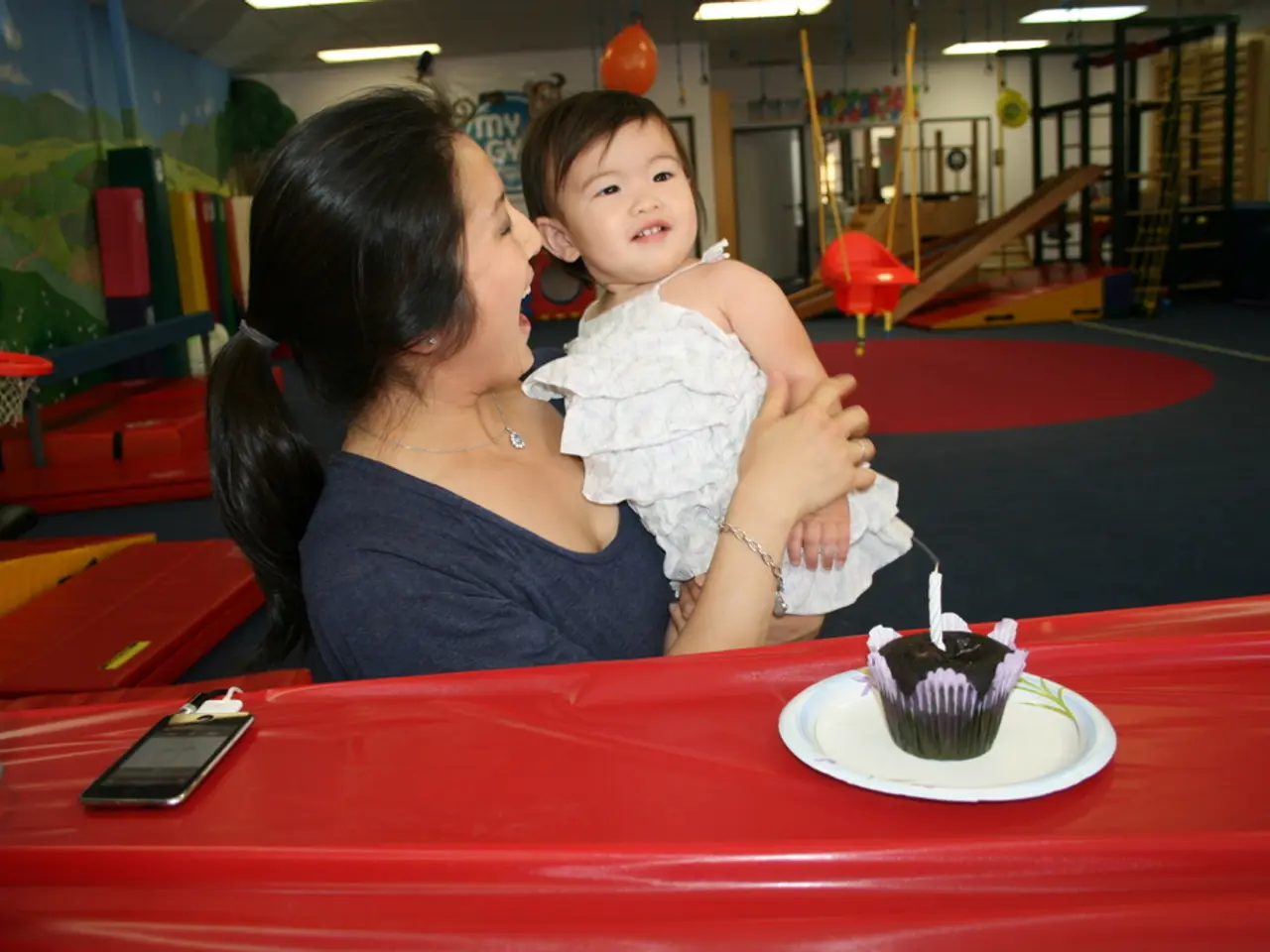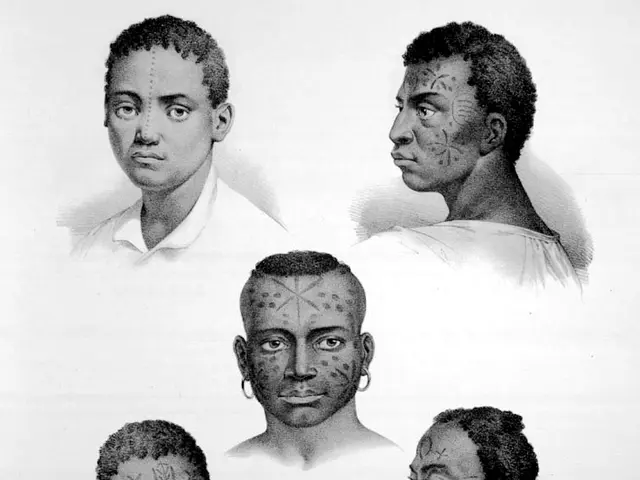Impact of Cultural Factors on Childhood Growth and Development Within Nigerian Communities
In the vibrant heart of West Africa, Nigeria stands as a melting pot of rich culture, traditions, and values. This diverse nation holds education in high regard, with parents striving to provide their children with quality education and emphasizing academic achievement.
From an early age, concepts like communal child-rearing instill a sense of collectivism and interdependence. This is evident in the strong family and community bonds that characterize Nigerian society, with extended families often living together. Grandparents, aunts, and uncles play active roles in childcare, fostering a nurturing environment for the young ones.
Art, music, and storytelling traditions in Nigeria foster creativity and imagination in baby development. Sharing culturally significant meals not only meets nutritional needs but also serves as a means of cultural identity transmission, reinforcing social bonds and emotional security within the family.
Cultural practices impact parenting styles in Nigeria, nurturing emotional resilience and sociability in infants. However, ethnic diversity and associated tensions may influence emotional development by affecting social cohesion and trust among groups.
Nigerian households commonly prioritize education and religion as key values, fostering intellectual curiosity and cognitive development from an early age. Religious practices provide emotional support and structure for young children, shaping moral values, rituals, and worldview.
One challenge is balancing traditional customs with modern practices as Nigeria becomes more globalized. Embracing cultural diversity enriches a child's worldview and fosters inclusivity, cultivating respect, empathy, and a sense of belonging.
A strong cultural preference for sons affects family dynamics and child-rearing practices. In Nigeria, parents with daughters tend to have more children and shorter birth intervals, which can strain resources and affect maternal and child health. Son preference also influences child fostering patterns and social roles within the family, potentially reinforcing gender-specific development expectations and social positioning.
English, as the official language, is widely spoken in Nigeria, while local languages like Igbo, Yoruba, and Hausa are also commonly used. Acknowledging and embracing these cultural influences is pivotal for children to grow up appreciating the richness of their heritage while embracing diversity.
Western culture has had a significant influence on Nigerian society, which can impact the development of babies and potentially challenge traditional upbringing. "Parenting in the Digital Age" and "Raising Financially Smart Nigerian Kids" are available as e-books for sale, offering guidance on navigating these modern challenges while preserving cultural values.
Parents are encouraged to explore their heritage and understand how it shapes their parenting, empowering them to pass down meaningful traditions. By doing so, cultural influences enable the transmission of Nigerian cultural heritage and values from one generation to the next, ensuring that the rich tapestry of Nigerian culture continues to thrive.
[1] Son Preference and Family Structure [2] Educational and Religious Emphasis [3] Food and Cultural Identity [4] Communal and Ethnic Values [5] Challenges in Balancing Traditional Customs with Modern Practices
- The priority on son preference affects family dynamics and child-rearing practices, leading to more children and shorter birth intervals in families with daughters.
- Nigerian households prioritize education and religion, fostering intellectual curiosity and cognitive development in kids.
- Sharing culturally significant meals not only meets nutritional needs but also serves as a means of cultural identity transmission for babies.
- Embracing cultural diversity enriches a child's worldview, fostering inclusivity, respect, empathy, and a sense of belonging.
- Communal child-rearing instills a sense of collectivism and interdependence in kids, echoing in the strong family and community bonds of Nigerian society.
- Parenting styles in Nigeria nurture emotional resilience and sociability in infants, fed by cultural practices.
- Ethnic diversity and associated tensions may influence emotional development, potentially affecting social cohesion and trust among groups.
- Art, music, and storytelling traditions in Nigeria foster creativity and imagination in baby development.
- By understanding how their heritage shapes their parenting, parents empowers themselves to pass down meaningful cultural traditions.
- A strong cultural preference for sons may influence child fostering patterns and social roles within the family, potentially reinforcing gender-specific development expectations and social positioning.
- Parents are resourceful, seeking guidance via e-books such as "Parenting in the Digital Age" and "Raising Financially Smart Nigerian Kids" for navigating modern challenges without compromising cultural values.
- Grandparents, aunts, and uncles play active roles in childcare, creating a nurturing environment that supports the emotional security and growth of young ones.
- Western culture has had a significant influence on Nigerian society, which can impact the development of babies and potentially challenge traditional upbringing.
- In the vibrant heart of West Africa, Nigeria, education holds a significant value, pushing parents to strive for quality education for their children and emphasize academic achievement.
- Religious practices provide emotional support and structure for young children, playing a crucial role in shaping moral values, rituals, and worldview.
- Despite the challenges in balancing traditional customs with modern practices, embracing cultural diversity is key to a child’s personal growth, ensuring that the rich tapestry of Nigerian culture continues to thrive.
- Parents strive to foster learning in children by applying various childcare practices, setting the stage for collective success in education, travel, sports, fashion-and-beauty, food-and-drink, home-and-garden, relationships, education-and-self-development, career-development, job-search, skills-training, childcare, and more.




